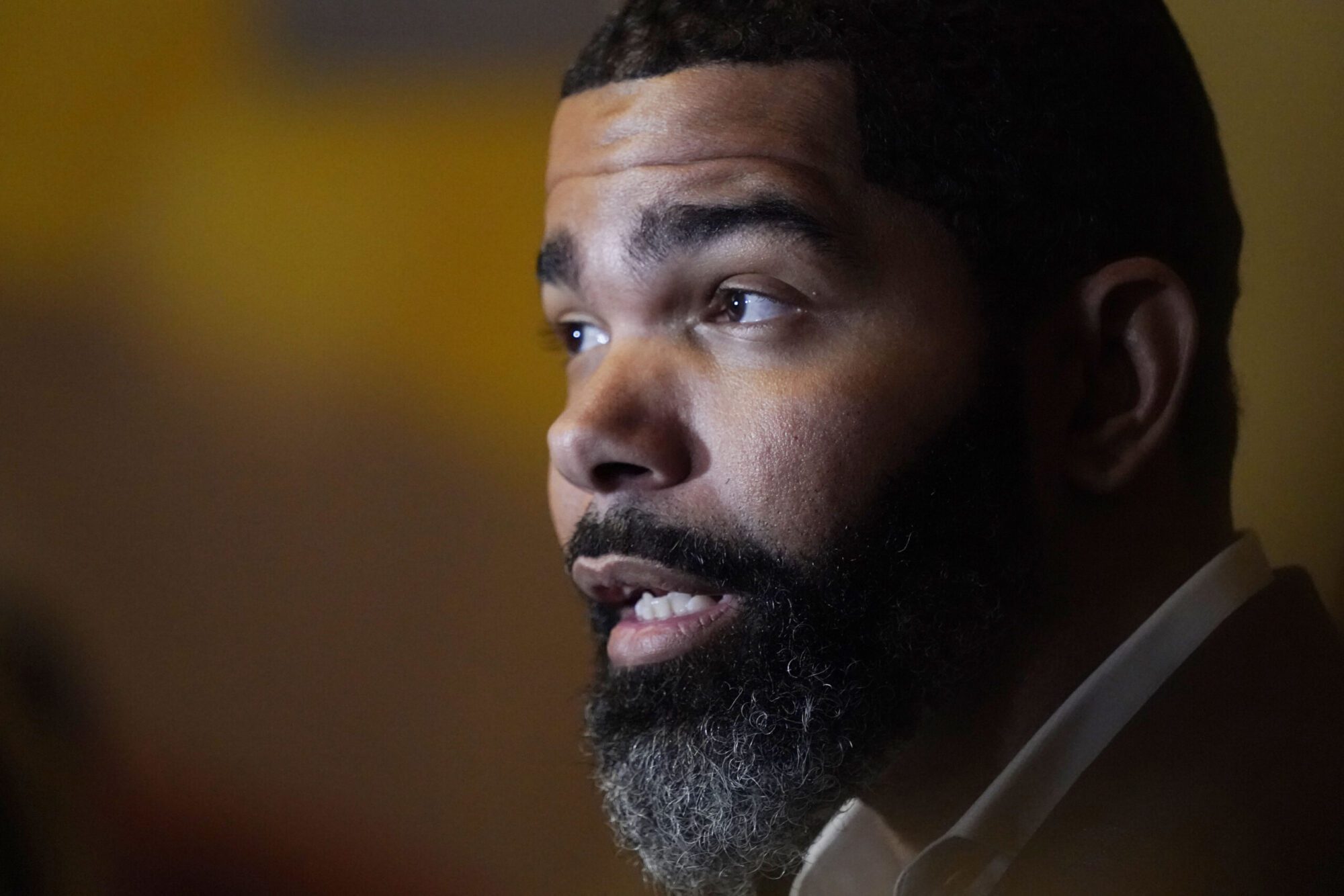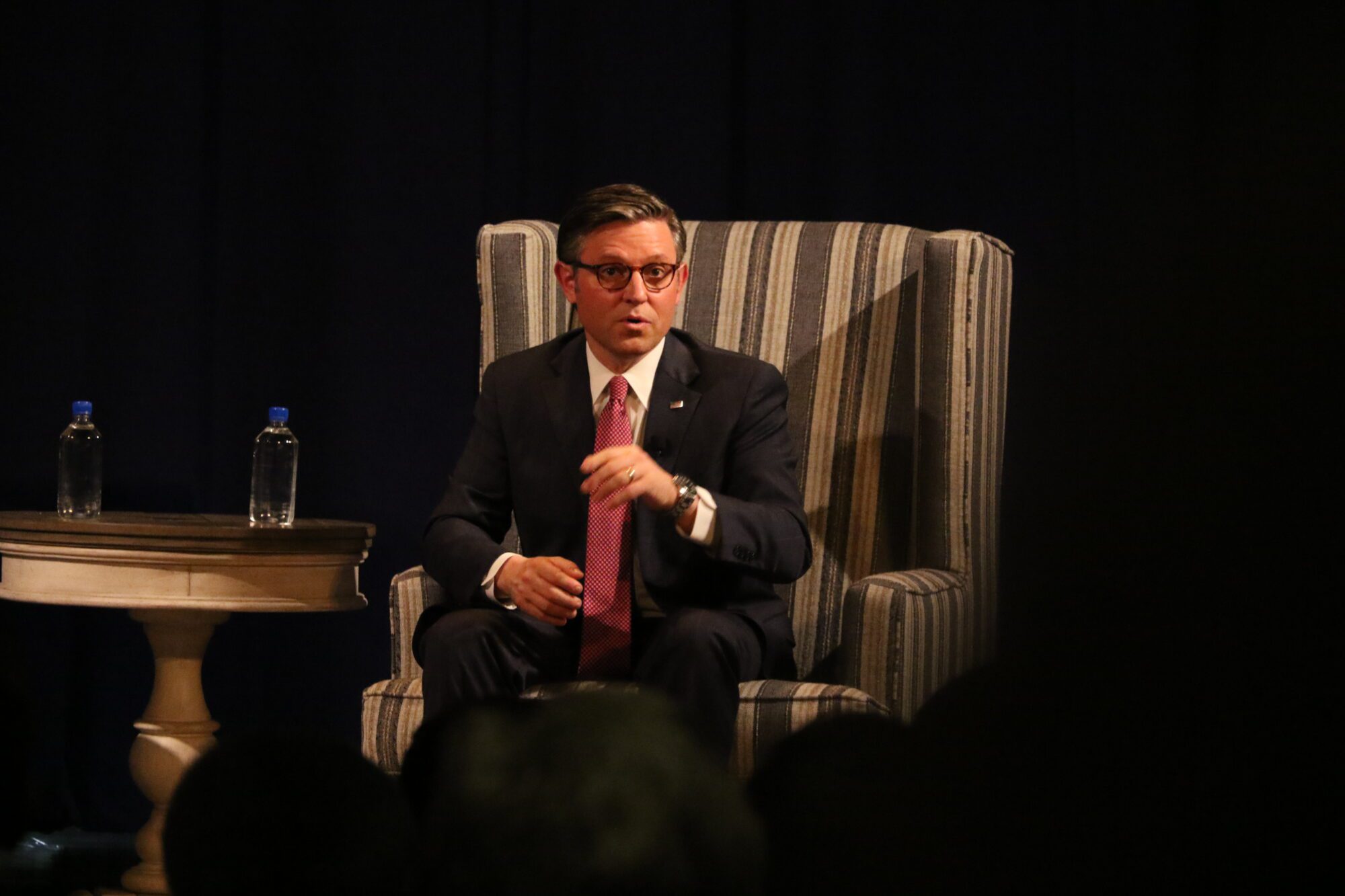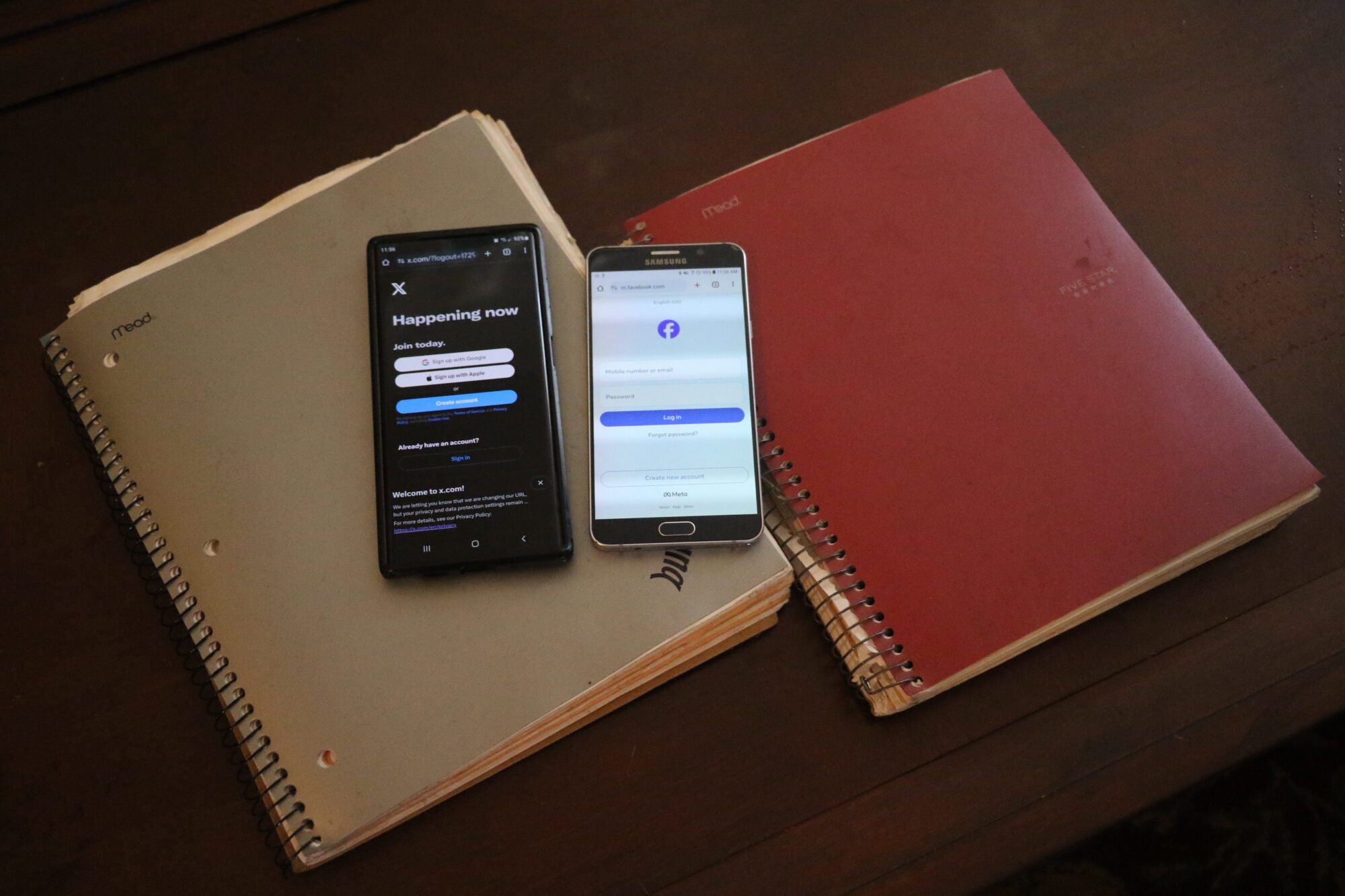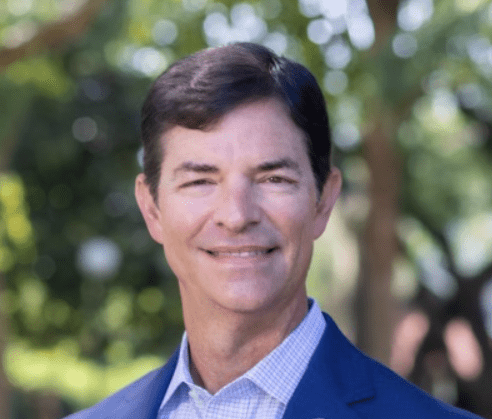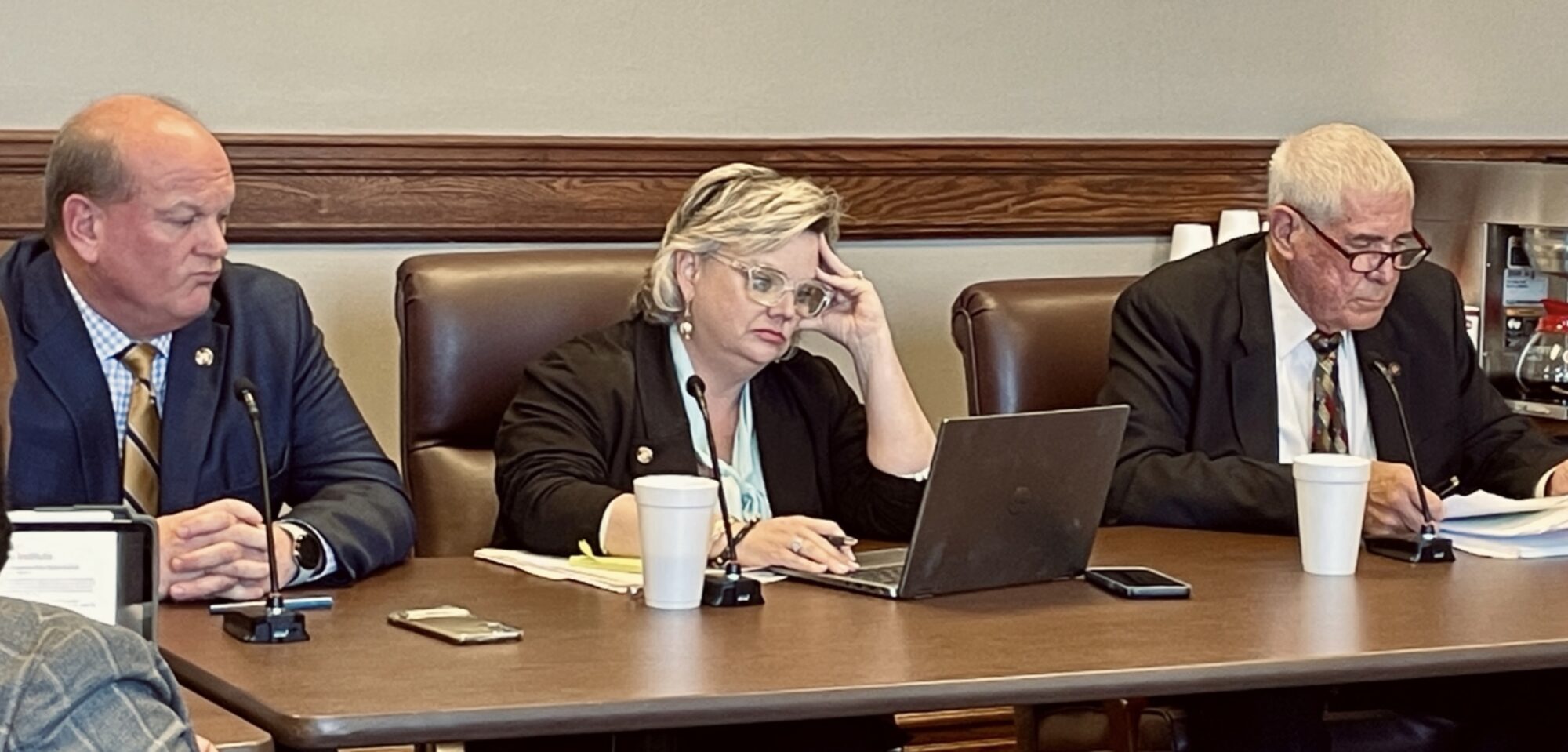
Senate conferees on Medicaid expansion legislation.
- One proposal offered by the Senate incorporates the compromise put forward by the House this week but hinges on CMS approving a work waiver, something Senators say is non-negotiable.
On Friday, Senate Medicaid conferees returned two signed conference reports to House conferees to consider for HB 1725, the Medicaid expansion bill, one of the most controversial pieces of legislation this session.
The report comes after the House conferees called a public conference meeting on Thursday despite the Senate not agreeing to attend.
Senators Kevin Blackwell (R), Nicole Boyd (R), and Brice Wiggins (R) all signed the conference proposals, one of which incorporates the compromise offered by House members earlier this week but retains the Senate’s position of making the expansion dependent on receiving a work requirement waiver from the Centers of Medicaid and Medicare Services (CMS).
The two proposed Senate conference reports include:
- “The original Senate proposal requires the Mississippi Division of Medicaid to apply for a waiver to cover people making up to 100 percent of the federal poverty level (less than $31,200 for a family of four). The plan would not move the 140,000 people between 100-138 percent of the federal poverty level who are currently on commercial plans on the federal health insurance exchange to Medicaid plans—and the state would receive no federal match money for this population. The waiver, if approved by CMS, would allow the state to draw down 77 percent in federal match money and would primarily be paid for through an assessment on managed care organizations.“
- The new Senate compromise proposal requires the Mississippi Division of Medicaid to apply for a waiver to cover people making less than 100 percent of the federal poverty level to be covered by a managed care organization. Medicaid would also cover people between 100-138 percent of the federal poverty level through the federal health insurance exchange (138 percent of the federal poverty level is less than $43,056 for a family of four). The waiver, if approved by CMS, would allow the state to draw down 90 percent in federal match money, but would also require the state to pay 10 percent of the cost of coverage/the commercial plans through 138 percent of the federal poverty level. The program would be largely paid for through an assessment on managed care organizations and an increased insurance premium tax on exchange plans provided to the eligible Medicaid beneficiaries.”
The release sent out by the Senate conferees reiterated what both Lt. Governor Delbert Hosemann (R) and Senator Blackwell have said in the past, that a work requirement is a non-negotiable element for their chamber. However, the new compromise proposal from the Senate does have language directing the Attorney General to appeal in federal court if CMS denies the waiver.
“We are hopeful a compromise is on the horizon. When people are healthy, they are working, raising their families, and contributing to their communities,” Lt. Governor Hosemann said. “Access to healthcare is a critical component of economic and workforce development efforts in Mississippi—and reforming healthcare is the right thing to do.”
How we got here
Prior to this proposal from the Senate, House conferees for the Medicaid expansion bill called a meeting on Thursday afternoon to discuss the bill. However, the three Senate conferees were not in attendance at the time.
“As you can see, and I can see, apparently the Senate conferees are not going to be able to make it today. I’m disappointed in that,” said State Rep. Missy McGee. “I’m hopeful that we will have more information to agree on a bill that we can present to the Governor. I guess we’ll just wait and see when we can resume that conversation.”
Senator Blackwell told reporters that they were not present because they did not have anything to present to the House conferees at the time. He added he was also in a Public Health Committee meeting when McGee set the meeting.
At the last conference meeting, the House offered a compromise not to expand Medicaid to the 138 percent of the federal poverty level (FPL), but cap at the 99 percent, leaving the remainder on the exchange.
“The House asked us to work on a compromise that went up to 138 percent of FPL. And that is what we are doing,” Blackwell said in a statement.
Prior to the adjournment of the brief Thursday meeting, State Rep. Sam Creekmore (R), who Chairs the House Public Health Committee, said over the last three months members have heard from many individuals in the healthcare industry providing reports on the poor health of the state’s residents and lack of support of hospitals, particularly in the Delta.
“Here’s a chance to help all these people who have been in the Capitol the last three months asking for help. The House of Representatives is listening,” said Rep. Creekmore.
State Rep. Joey Hood (R), former Chair of the House Medicaid Committee, also shared his disappointment that members of the Senate were not present.
Additional coverage efforts
The two chambers have been successful in agreeing to other efforts at addressing healthcare using Medicaid in recent years.
Last session, the House moved forward with a Senate proposal by Senator Boyd and Senator Blackwell to extend postpartum care for women on Medicaid from 60 days to one year.
This year, both the House and Senate offered proposals to authorize presumptive eligibility for Medicaid coverage for pregnant women. The Senate ultimately agreed to move forward with the House bill, which has since become law.
Additional changes are also expected to come by way of the “Medicaid tech bill,” Senate Bill 2823, which addresses children with disabilities and access to Medicaid coverage, an increased reimbursement rate for some providers, and an inclusion of new coverage areas such as glucose monitoring.
“At the beginning of the Session, the House said they would bring up the Senate bill, so we are looking forward to seeing this legislation finalized,” Blackwell said.
#####
